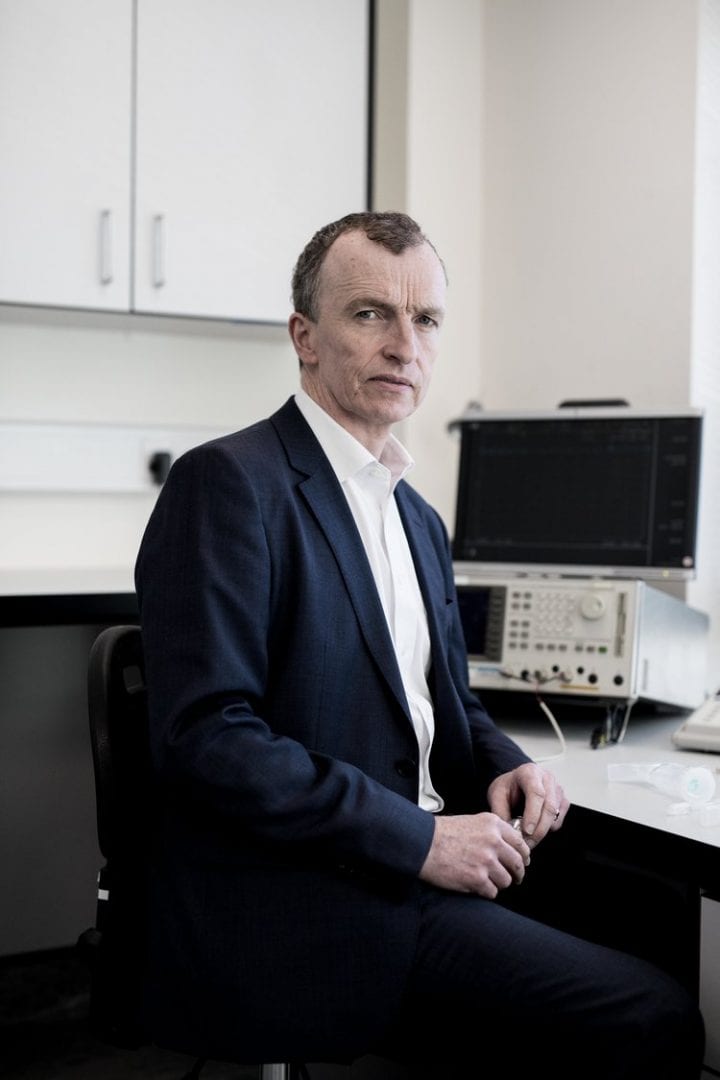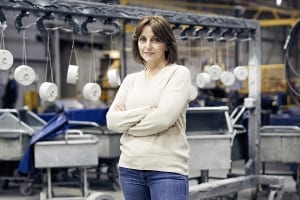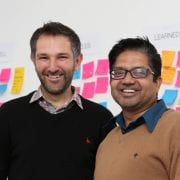Get with the Programmers
“We try to instil a workplace mindset from the beginning, to better prepare students for the real world of work,” said Cassidy.
Any entrepreneur will tell you that the secret of a successful start-up is spotting a gap in a market and filling it. This usually involves solving a problem that prospective customers have been struggling with. For Anthony Quigley, it’s been around education, focusing on increasingly in-demand professional skills that are poorly served by more traditional training. First he did it with the Digital Marketing Institute, empowering marketing professionals with new skills for the social media era. Now, he’s tackled programming.
In 2015, he launched the Code Institute, a bootcamp for coders that sets out to address widely recognised skills shortages, hampering the growth of technology companies. With so many multinationals located in Ireland and a healthy indigenous sector, there was no shortage of local demand but Quigley had an eye on a much bigger market that he could serve with ‘one-to-many’ online courses.
Jim Cassidy, chief executive, takes up the story.
“By 2020, there are expected to be 800,000 vacant ICT roles across Europe and over a million in the US. So it became clear to Anthony that the traditional methodology being used for teaching in universities isn’t fit for purpose”
Founders of the Code Institute are not criticising what third-level technical courses teach; they’re just setting out to do something different. A computer science degree that takes four years to complete will not provide the throughput of skills the tech industry currently needs, according to Cassidy, and the sheer pace of technological change means that a lot of what students learn may be out of date by the time they graduate.
With 48-week full-time courses and 4-month part-time, the goal is to get jobready developers into the market faster and arm them with the skills that companies urgently need. The institute has been built from the ground up to be more agile than traditional colleges and will put on courses to meet spikes in demand. Its Industry Advisory Council, made up of corporates like Accenture and Morgan McKinley, recruits graduates from the institute and provides a useful barometer of the skills in demand. “We continually update, amend and change our courses based on their feedback, which helps us make sure courses are absolutely relevant,” said Cassidy.
Programme director Brian O’Grady is keen to stress that it’s not the aim or ambition of the institute to compete with a full degree. He describes the courses as “narrow scope, deep learning,” as opposed to universities that tend to be “broad scope, shallow on topics”. The big difference is that each course is hugely condensed. “When I did my postgraduate studies, I would have done around 49 hours of coding in a year. We’re doing 600 hours. It’s a very immersive experience as opposed to something that’s spread out over four years.”
The other big difference is that course participants are treated more like employees than students and given projects and practical assignments on a daily basis. “We try to instil a workplace mindset from the beginning, to better prepare students for the real world of work,” said Cassidy. “That’s why it’s project rather than exam-based. When a student is being interviewed for a job, they can show work that they’ve actually done.”
For any courses to be credible, they need to be accredited and internationally recognised. The institute’s diplomas conform to the requirements of the European educational framework and have been recognised by Edinburgh Napier University. Having identified the market and ticked the educational boxes, the focus has turned to growing the business.
In 2016, the institute raised €500,000 syndicated investment from Kernel Capital and Enterprise Ireland, which has been used to fuel overseas expansion. The biggest differentiator from bricks-and-mortar colleges is that 90% of its courses are taught online, which is fundamental to the start-up’s plans to grow internationally.
A number of global partnerships have been established in the UK, US and Saudi Arabia to advance overseas expansion, with more to come in Canada and Australia. “We have identified learning partners in each of these jurisdictions that have the expertise and skill sets to sell and support ICT-based courses,” explained Cassidy. “We have a 600-hour online course, so we need companies with a certain type of support capability.”
Course content is a combination of video and printed materials with interactive elements. The chat and collaboration app Slack is also part of the online set-up. “We try to recreate the social aspect of being in a classroom, which is a very important aspect of learning. Students can interact with each other as well as a dedicated teams of mentors,” said O’Grady. “It’s like having a professional developer sitting at the desk next to you.”
Two courses are currently running, a Full Stack Diploma that teaches the main programming languages (JavaScript, HTML, CSS) and a Diploma in Tech Fundamentals. The first appeals to first-timers with no tech experience as well as people with some programming under their belt.
“I’d say 70% of people who take it have no software development background, and they’re looking to find a new career, but we also have a good cohort of people who have been exposed to some level of software development and are now looking to upskill”
The age range is typically 24–35, and, just like traditional computer courses, it’s still male dominated.
The second course is aimed at C-level managers as well as business owners and entrepreneurs who would benefit from a better understanding of code and programming. “Every business is now a technology business,” said Cassidy. “Take the course and you’ll see what’s required to get a business off the ground faster.”







 Burnside Autocyl designs and manufactures customised hydraulic cylinders for original equipment manufacturers in the manual handling, construction and manufacturing sectors.
Burnside Autocyl designs and manufactures customised hydraulic cylinders for original equipment manufacturers in the manual handling, construction and manufacturing sectors.







 Are you targeting any other markets currently?
Are you targeting any other markets currently?
